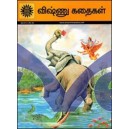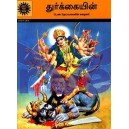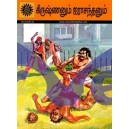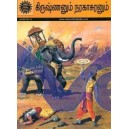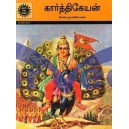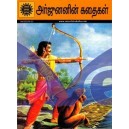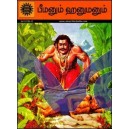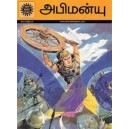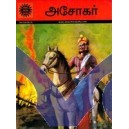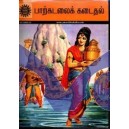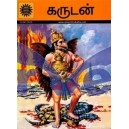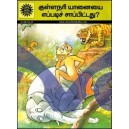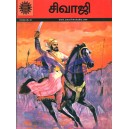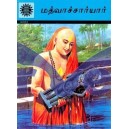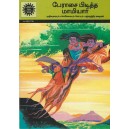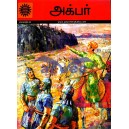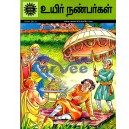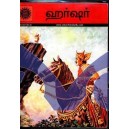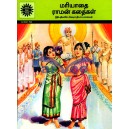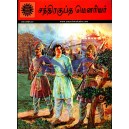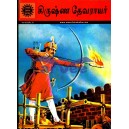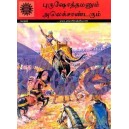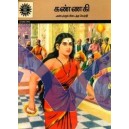No products
Amar Chitra Katha Tamil
- Art & Craft
- Graphic Novels & Comics
- Early Readers
- Junior Readers
- The Sleepover Club
- Jack Sparrow
- Kim Possible
- Enid Blyton
- Go Girl !
- Star School
- Roald Dahl
- Tashi Adventures
- Zac Power
- Magic Ballerina
- Disney Princess
- Disney Fairies
- Secret Of Droon
- Twisted Journey
- Future Scientist
- Ready Freddy
- Branches
- Read-It Series
- Goosebumps
- Goosebumps HorrorLand
- Goosebumps Series 2000
- Give Yourself Goosebumps
- Billie B Brown
- Boyz Rule!
- Girlz Rock
- Hey Jack
- Rainbow Magic
- Get Real
- Diary Of Robin Toys
- Lizzie McGuire
- Andrew Clement
- Galaxy Zack
- Ana Junior Classics
- All Set To Read
- 4 in 1 Junior Classics
- 15 in 1 Moral Stories
- Everlasting Series
- Classic Tales for Children
- Tom Gates
- Wise Men of the East
- Geronimo Stilton
- Mango Classics
- Young Readers
- All Time Great Classics
- The Shadow Beasts
- Underland Chronicles
- The Daring Moore
- Star Wars
- Sophie Mckenzie
- Diary Of Wimpy Vampire
- Maze Runner
- The Hunger Games
- Guardians Of Ga'Hooles
- Eva Ibbotson
- The Chronicles of Narnia
- The Princess Diaries
- Dork Diaries
- Ghost and Horror Stories
- Mary-Kate and Ashley
- Conspiracy 365
- World Famous Series
- World-Famous
- The Butterfingers Series
- Novels - English
- Agatha Christie
- Paulo Coelho
- Shiva Trilogy
- Twilight
- Mills and Boon
- Chetan Bhagat
- Durjoy Datta
- Elizabeth Gilbert
- Ram Chandra Series
- Baahubali - Before the Beginning Trilogy
- Vikramaditya Veergatha Trilogy
- Mahabharata Quest Series
- AJAYA - Epic of the Kaurava Clan
- ARTEMIS FOWL
- Percy Jackson
- Rick Riordan
- The Last Thirteen
- Cassandra Clare Shadow Hunters
- Motivational & Inspirational
- Teaching Aids & Reference
- 100 Ideas
- Amazing History
- Amazing Machines
- I Want to Know About
- The Times Book of IQ Tests
- Inspire Lives
- Collins Instant Facts
- Know About Science
- Quiz Quest
- Biography
- Great Brand Stories
- Just Skills
- Write Your Own
- Clever Clogs
- Tamil-Tamil-English Dictionary
- Creative Companies
- Rupa Quiz
- Our World
- English In Action
- IQ Books
- Your Body Your Life
- Disney Children’s Encyclopedia
- Question & Answer Series
- Amazing Fact Finder
- English Literature Component
- Board Games
- Children Knowledge Books
- Cooking Books
- Science Experiments & Projects
- Hinduism
- Humour
- Self Development
- Tamil Books
- Novels - Malay
Viewed products
-

Buddha
In the area on the present border of...
 View larger
View larger Buddha
New product
In the area on the present border of India and Nepal, there was a small kingdom in the 6th century before the Common Era. When the prince was born, fortune-tellers forecast that he would be either a great king or a great saint.
This product is no longer in stock
Data sheet
| Dimensions (cm) : | 24.0(H) x 17.5(W) x 0.3(D) x 0.1kg |
| ISBN : | 9789350851746 |
| Author : | S.K Ramachandra Rao |
| Publisher : | Amar Chitra Katha |
| Type : | Paperback |
More info
The king took every care to keep him in a life of pleasure so he would become king, not saint. The prince grew to be a strong, handsome youth. Yet he was kind; he saved a bird struck by his cousin's arrow and so claimed the bird as his. One day, on a ride outside the palace through the city, he saw a sick, an old and a dead man. Their sight opened his eyes to the suffering in the world and set him thinking. One night, he left his wife, newborn son and the palace and went in search of knowledge to end suffering in the world. He traveled far and wide and went through many austerities but realized that, sorrow can be ended, not by starving the body but by freeing oneself from desire. He set out teaching this. People called him Buddha. He started preaching against animal sacrifice as the means to satisfy desires. Soon commoners and kings alike started listening to him. There were detractors too, but he came out unharmed through all their evil designs. Back to his town during his travels, he finally won over his own family to his teachings.
Reviews
No customer reviews for the moment.
30 other products in the same category:
Customers who bought this product also bought:
-
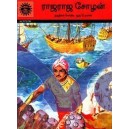
Raja Raja Chola
One of the great kings of southern India during...
RM5.00
-
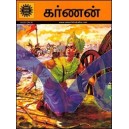
Karnan
Relive the magic of Karna, the first son of...
RM5.00
-
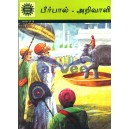
Birbal The...
An ideal gift for birthdays. It takes a wise...
RM5.00
-
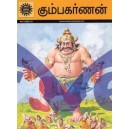
Kumbakarnan
It was a time when Indian society was reeling...
RM5.00
-
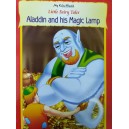
Aladdin and...
Aladdin finds a Magic Lamp, but a wicked...
RM3.00
-
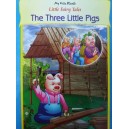
The Three...
The Three Little Pigs and Bad Wolf
RM3.00
-
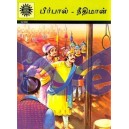
Birbal The Wise
Birbal, whose real name was 'Maheshdas', was...
RM5.00
-
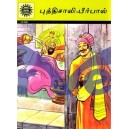
Birbal The...
Birbal had proved himself to be the most...
RM5.00
-
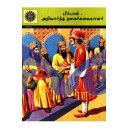
Birbal The...
Birbal, a real person with the name Maheshdas,...
RM5.00
-
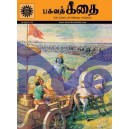
The Gita
Gita, short for Bhagavad Gita, 'the Divine...
RM5.00



